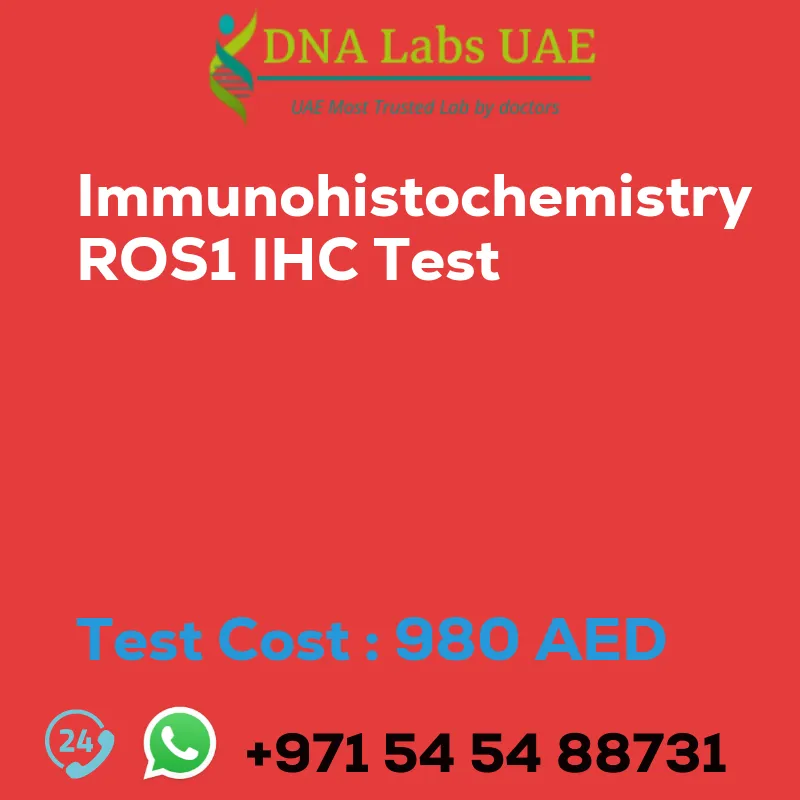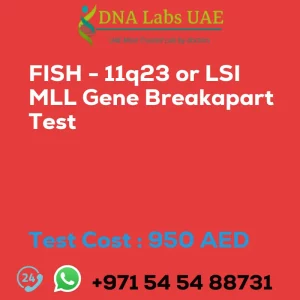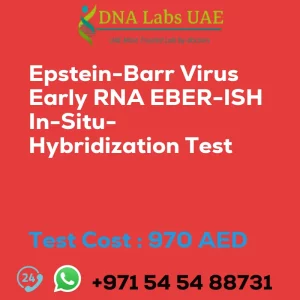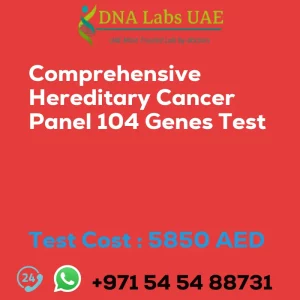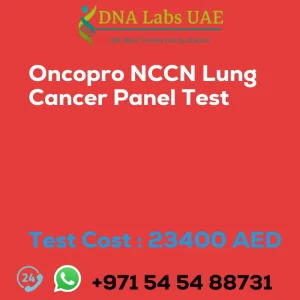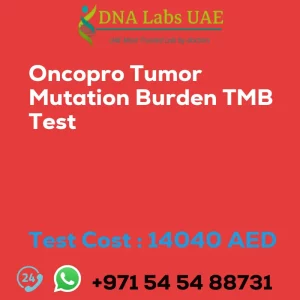Immunohistochemistry ROS1 IHC Test – DNA Labs UAE
At DNA Labs UAE, we offer the Immunohistochemistry ROS1 IHC Test for the diagnosis and management of ROS1-positive cancers. This test helps detect the presence of ROS1 protein in tissue samples, providing valuable information for treatment decisions and improving patient outcomes.
Test Details
The Immunohistochemistry (IHC) ROS1 test is a diagnostic test used to detect the presence of ROS1 protein in tissue samples. ROS1 is a receptor tyrosine kinase that plays a role in cell growth and differentiation. Mutations or rearrangements in the ROS1 gene have been identified in various types of cancers, including lung cancer.
The IHC ROS1 test involves staining tissue samples with specific antibodies that bind to the ROS1 protein. If the ROS1 protein is present in the tissue, it will be detected by the antibodies, resulting in a positive test result. This test can help identify patients who may benefit from targeted therapies that specifically target the ROS1 protein.
The IHC ROS1 test is typically performed on tumor samples obtained through biopsy or surgery. The tissue sample is fixed, embedded in paraffin, and then cut into thin sections. The sections are then mounted onto slides and subjected to a series of steps, including deparaffinization, antigen retrieval, blocking, and incubation with the ROS1 antibody. After incubation, the slides are washed to remove any unbound antibodies, and a secondary antibody is applied to amplify the signal. Finally, the slides are visualized under a microscope, and the presence of ROS1 protein is determined based on the intensity and location of the staining.
Test Cost
The cost of the Immunohistochemistry ROS1 IHC Test at DNA Labs UAE is AED 980.0.
Symptoms and Diagnosis
If you are experiencing symptoms that may be indicative of ROS1-positive cancers, such as lung cancer, it is important to consult with an oncologist or pathologist. They will evaluate your clinical history and may recommend a biopsy or surgery to obtain a tissue sample for testing.
Sample Condition and Submission
To perform the Immunohistochemistry ROS1 IHC Test, we require a tumor tissue sample submitted in 10% Formal-saline or a Formalin fixed paraffin embedded block. The sample should be shipped at room temperature. Additionally, please provide a copy of the Histopathology report, site of biopsy, and clinical history.
Report Delivery
The report for the Immunohistochemistry ROS1 IHC Test will be delivered as follows:
- Sample: Daily by 6 pm
- Report Block: 5 days
- Tissue Biopsy: 5 days
- Tissue large complex: 7 days
Test Department and Doctor
The Immunohistochemistry ROS1 IHC Test is conducted in our Test Department and is typically ordered by an Oncologist or Pathologist.
Pre-Test Information
Prior to the test, please provide a copy of the Histopathology report, site of biopsy, and clinical history.
At DNA Labs UAE, we are dedicated to providing accurate and reliable diagnostic services. The Immunohistochemistry ROS1 IHC Test is an important tool in the diagnosis and management of ROS1-positive cancers. Contact us today to learn more or schedule an appointment.
| Test Name | Immunohistochemistry ROS1 IHC Test |
|---|---|
| Components | |
| Price | 980.0 AED |
| Sample Condition | Submit tumor tissue in 10% Formal-saline OR Formalin fixed paraffin embedded block. Ship at room temperature. Provide a copy of the Histopathology report, Site of biopsy and Clinical history. |
| Report Delivery | Sample Daily by 6 pm; Report Block: 5 days Tissue Biopsy: 5 days Tissue large complex : 7 days |
| Method | Immunohistochemistry |
| Test type | Cancer |
| Doctor | Oncologist, Pathologist |
| Test Department: | |
| Pre Test Information | Provide a copy of the Histopathology report, Site of biopsy and Clinical history. |
| Test Details |
The Immunohistochemistry (IHC) ROS1 test is a diagnostic test used to detect the presence of ROS1 protein in tissue samples. ROS1 is a receptor tyrosine kinase that plays a role in cell growth and differentiation. Mutations or rearrangements in the ROS1 gene have been identified in various types of cancers, including lung cancer. The IHC ROS1 test involves staining tissue samples with specific antibodies that bind to the ROS1 protein. If the ROS1 protein is present in the tissue, it will be detected by the antibodies, resulting in a positive test result. This test can help identify patients who may benefit from targeted therapies that specifically target the ROS1 protein. The IHC ROS1 test is typically performed on tumor samples obtained through biopsy or surgery. The tissue sample is fixed, embedded in paraffin, and then cut into thin sections. The sections are then mounted onto slides and subjected to a series of steps, including deparaffinization, antigen retrieval, blocking, and incubation with the ROS1 antibody. After incubation, the slides are washed to remove any unbound antibodies, and a secondary antibody is applied to amplify the signal. Finally, the slides are visualized under a microscope, and the presence of ROS1 protein is determined based on the intensity and location of the staining. The IHC ROS1 test is a valuable tool in the diagnosis and management of ROS1-positive cancers, as it provides information about the expression of the ROS1 protein in tumor tissue. This information can help guide treatment decisions and improve patient outcomes. |

